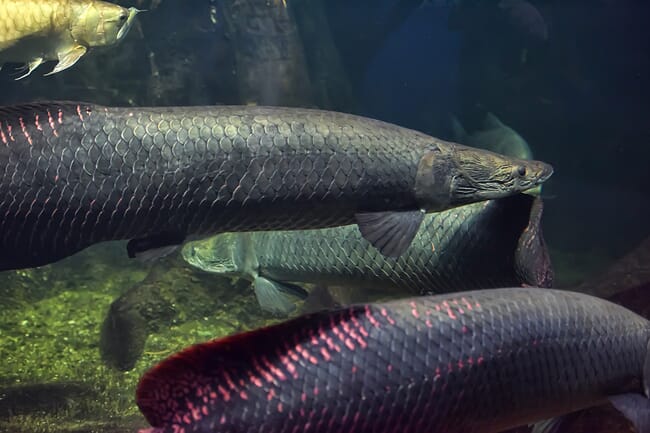The culture of Arapaima, one of the largest freshwater fish in the world, is increasing in Brazil (where is commonly known as pirarucu) in recent years, due to its the high nutritional quality of its flesh and the traditional appeal of wild Arapaima, which can reach over 200 kg. The species, which is native to Amazonia, is also proving suitable for farming as it tolerates high stocking densities and regular handling and can grow by 10-12 kg in a year. However, one of the main bottlenecks is the limited availability and high price of juveniles for on-growers.

Larviculture, note the authors of the paper, can be problematic, due to the species' large morphophysiological transformations and they require live food, such as Artemia, as juveniles. And the researchers found that using slightly salinised water - containing a concentration of up to four parts per thousand of sodium chloride (NaCl) - resulted in higher weight gain and condition factor than pirarucu larvae reared in freshwater.
The reasons behind this, they speculate, is likely to be linked to the fact that the Artemia nauplii lived for up to four times longer, therefore improving their availability as a food sources. They also note that the increase in salinity reduced the energy required by the juvenile Arapaima for osmoregulation.
As a result, they suggest adding small quantities of NaCl to Arapaima hatcheries is a simple, low cost means of improving pirarucu larviculture. However, they also add that more research needs to be done.
“Future studies comparing NaCl with natural sea salt aiming at the survival of Artemia nauplii in addition to parasite control need to be carried out for the larviculture of this species. Besides that, the impact of discharged salinised water into receiving streams needs to be evaluated to avoid environmental problems, establishment of the nutritional values that the Artemia nauplii provide for pirarucu larvae and if the 4‰ concentration of NaCl does not affect the osmoregulation of the larvae,” they conclude.
Click here to read the full paper Slightly salinized water enhances the growth and survival of Arapaima gigas larvae


